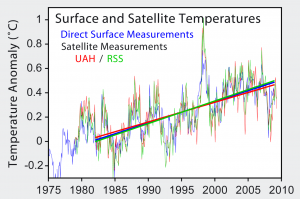Here are 4 Big Social Changes That Will Follow After The End Of The Coronavirus Panic.
No-one can predict the future, other than to be sure things will change. Here are 4 developments we anticipate will occur following the disturbing government suppression to which we have been subjected during the coronavirus panic.
The majority will completely stop listening to and believing in government.
In the coronavirus pandemic crisis, we have been ill-advised and misled, and confined and suppressed and coerced and controlled. By the time the virus panic is over, millions of economic lives will have been destroyed, with collateral damage to mental and physical health, friendships, families and other relationships, institutions, and business loyalties. Our faith in many things will have been damaged. One of those things is government.
Faith is an irrational belief in the truth of a proposition irrespective of evidence to the contrary. It is not boundless or endless. The more the believer’s faith is contradicted by reality, the greater the test. Government – using the term to mean the institution, irrespective of which political party is at the helm at any point in time – has asked us to believe that they are justified in shutting down the economy on the basis of a wildly erratic interpretation of wildly erratic data. It has asked us to pledge obedience to mad scientists posing as experts. It has asked us to accept draconian limitations on our movement, our socializing, our working and earning a living and our freedoms in general. It has threatened military action and legal action.
It’s hard to discern a motive for this destruction. Probably, governments prefer greater control over a diminished system than less control over a thriving population.
But it seems rational that intelligent people will now cease to believe a single utterance that comes from government, whether the executive, legislative or judicial branch. That they could mislead so deliberately as to drive a highly productive and highly civilized populace into depression and dysfunction must be viewed as shocking. Evil is a word that’s hard to use with accuracy, but it may fit.
The consequences of a loss of faith are impossible to predict. But change in the arrangements of the society and the polity are inevitable. Loss of faith in the dominant and hegemonic Catholic Papacy centuries ago led to the Reformation and a cascade of positive, civilization-advancing changes. Perhaps we can anticipate similar breakout progress when the people sever the cord of faith binding them to government.
We’ll all stop believing in data and models.
A central feature of the pandemic phenomenon has been the prominent role of data, models, and modelers. There is an increasing modern pretense that there is no limit to the amount and type of data that can be collected to shed light on wicked problems. Once collected, the data can be processed to identify patterns and trends. Once processed, it can be plugged into so-called models, riddled with assumptions about the unknown and the unknowable, and these models then claim to predict the future.
Our faith in these models knows no bounds. We believe we can predict how many coronavirus deaths there will be 10 days from now. We believe we can predict the warming of the planet’s atmosphere 10 years from now. We believe we can predict the extinction of species and the rate of growth of the economy.
But, of course, we can’t. And the reason is well-known, albeit ignored or suppressed. The quantification principle of modeling does not apply in human behavior. Every human is different, every individual reacts differently to changes in the environment and context, everyone makes their own arrangements, every value judgment is subjective, emotional, idiosyncratic and unpredictable. Value judgments precede behavior, and so behavior is equally unpredictable. Human populations are not subject to modeling.
Exacerbating the problem, the models are voracious for data – “big data” is preferred, but not necessarily good data or relevant data or accurate data. In the coronavirus panic, we do not know how many people are infected with the disease, or how communicable it is. We do not even know the death statistics, since identifying COVID-19 as a notifiable disease results in people who died with conditions that included COVID-19 being recorded as dying of COVID-19. In every single instance, that piece of data may or may not be accurate. Or, as we used to say, truthful. The projections of the models are worthless at best, misleading at worst, and provide the fuel for government misbehavior.
The credibility of models and modelers has taken a fatal blow.
We will start to press harder for the dismantling of regulation, and reverse its hitherto unstoppable growth.
A telling observation about government behavior in the Coronavirus crisis is that, at the same time as imposing their draconian new restrictions, they are finding the need to rescind their previous draconian restrictions, those given the name of regulation. For example, it is regulation that limits the number of firms that can produce masks and ventilators. But the government’s panic pronouncements increase the demand for masks and ventilators. Government belatedly recognizes that it is its own regulatory restrictions that are causing the bottleneck, and increasing anxiety among the populace. Since the last thing they can accept is social disruption and disobedience, they quickly relax the regulations to open the bottleneck again.
This realization that regulation is anti-productive, restrictive and damaging may be enlightening, at least to the governed if not to the government bureaucrats and regulators. We can expect a surge of anti-regulation sentiment and protests, and a welling up of support for anti-regulation activists.
We’ll abandon cities.
Governments and politicians love cities: concentrated locations of regulation, control and surveillance. Housing control, wage control, zoning control, educational control, health control, and mobility control are all concentrated and exaggerated in cities.
But cities have turned out to be critical culprits in the pandemic. Close living quarters, cramped mass transit, teeming office buildings and apartment buildings, crowded sports and concert venues, and poor sanitation combine to create virological time bombs that are now exploding.
Smart people will start making better trade-offs. Perhaps more will move to the greater separation afforded by suburbs, working from home or commuting solo despite the urging of urban planners to crowd into mass transit. Perhaps apartment buildings and their crowded, virologically suspect elevators will no longer be so attractive. Perhaps more people will seek jobs – or start companies – that don’t require an urban anchor. Perhaps many will permanently abandon live sports and concerts in favor of digital remote participation that, quite possibly, will enhance the experience rather than diminish it.
Happily, we can expect the decline of the city as a prerequisite for social and economic interaction.






